A Letter from TransEpiscopal to the Bishops and Standing Committees of the Episcopal Church:
Peace and blessings to you in the name of Christ.
We, members of TransEpiscopal, standing alongside the LGBTQ+ Caucus and the Deputies of Color, write to you, the Bishops and Standing Committees of our Church, to urge you to decline to consent to the election of the Rev. Charlie Holt as bishop coadjutor of the Diocese of Florida. We ask you to take seriously the report of a “pattern and practice of LGBTQ clergy…not being treated equally with similarly situated clergy” by the Court of Review concerning the November 2022 bishop election in Florida, which found a serious pattern of violation of our Church’s non-discrimination canon. That canon states:
“No person shall be denied access to the discernment process or to any process for the employment, licensing, calling, or deployment for any ministry, lay or ordained, in this Church because of race, color, ethnic origin, immigration status, national origin, sex, marital or family status (including pregnancy and child care plans), sexual orientation, gender identity and expression, disabilities or age, except as otherwise provided by these Canons. No right to employment, licensing, ordination, call, deployment, or election is hereby established.” (Canon 3.1.2; see also Canon III.9.7a and Canon III.9.3a).
The Court of Review named the existence of a long-term, systematic pattern of mistreatment and exclusion of LGBTQIA+ clergy in the diocese resulting in the hindrance of their capacity to vote in the election of a bishop coadjutor. The testimonies included in the report are palpably heartbreaking. These serious findings, which have implications beyond even the specific election process irregularities named in the report, were investigated and reported upon by an elected official body of The Episcopal Church, and reveal the election itself to be fundamentally unfair. We urge you to decline to consent to this election to bring pastoral care and healing to this diocese and begin to reform diocesan systems of ordination access and deployment.
We also urge you not to default to an easy framing of this conversation as a referendum on the idea of “Communion Across Difference,” of the Episcopal Church as a “via media,” or “big tent,” and as a statement on whether theological conservatives truly belong in The Episcopal Church. At best such framing is a distraction, a red-herring argument. At worst it deceives from and covers over the structural elephant in the room: the systematic disenfranchisement of LGBTQIA+ people through long-standing pattern and practice, as the Court of Review report and subsequent news reports have underscored.
Communion across difference does not mean allowing cultures of discrimination to exist and it cannot forestall our charge to be consistent with our nondiscrimination canons. Communion across difference means there is room for theological disagreement, but not for bullying, not for controlling a system to keep centering your position, not for obfuscating that control, and not for suppressing votes. A “big tent” Church cannot condone a false equivalency between being discriminated against because of race or ethnicity, national origin, immigration status, sex, marital or family status, sexual orientation, gender identity or expression, disability or age – all aspects of who someone is – and being disagreed with because of a theological position (as the Rev. Canon Susan Russell has emphasized for years).
In that sense, the Diocese of Florida is not comparable to the Diocese of New Hampshire in 2003. The issue is not whether a diocese can elect the bishop who best fits their charism; we know of several recent bishops elected who hold conservative theological views, who were easily granted consent; but whether the process of that election fundamentally extends a pattern and practice of discrimination that we have agreed, in our polity, not to uphold. We also note that the bishop-elect, the Rev. Charlie Holt, has been working closely within that same discriminatory diocesan system since last summer.
We believe more is at stake in this dispute than the outcome of one diocesan episcopal election. While the specifics of this situation are distinct to the Diocese of Florida, the issues and power dynamics at play here matter for and reverberate across the whole Church. We agree with the Diocese of Florida’s standing committee president, the Rev. Joe Gibbes, who observed in a recent opinion essay in The Living Church that “if standing committees had to show an unblemished report card for the sitting bishop to be permitted to elect a successor, no diocese would ever be able to elect!” We in TransEpiscopal can tell many stories of discrimination in employment and deployment across the Church effecting trans and non-binary clergy in recent years – although we are glad to be able to highlight growing acceptance as well, and we welcome with joy the recent reaffirmation of support for trans people from the House of Bishops. We know as well as anyone in the Church that we are all still on a journey in this Church to overcome discrimination across many dimensions. The difference in this case is that the Court of Review has made a serious finding of a pattern and practice of such discrimination. As bishops and standing committees, you have a responsibility to take their report into consideration in this case. Otherwise, we as a Church will be saying that this canon does not matter, in the breach.
Our non-discrimination canons, adopted by General Convention, do point to an expansive, non-complementarian theology of the human, including a vision of marriage open to people beyond just heterosexual couples. We know not everyone accepts this theology fully, and we hope and pledge to stay in dialogue and relationship with those with whom we disagree. We, as trans and non-binary members of the Episcopal Church, and their families, fully believe that communion across difference is possible; we choose to take the risky path to see the face of Christ in one another and to love radically in the way Jesus calls us to. But we should also expect as a Church, that our systems will support us, full stop.
If your theology is different and if it accords with what the Church taught prior to the establishment of these non-discrimination canons — we reject the use of the term “traditional” to describe such a position, as if our position is somehow “untraditional”— you are still a beloved child of God and you still have a place at the table. We believe that in our journey together with God and each other, relationship is primary. We are called to walk the Way of Love together, for we know that when two or more are gathered in God’s holy name, God will be there. We are called to listen to each other in openness and walk alongside each other to the best of our abilities.
We are not called, however, to be tolerant of disrespect, bullying, intimidation, or being treated like doormats. Trans and non-binary people, the LGBTQIA+ community as a whole, and all historically marginalized communities, are done simply being tolerated and we are done tolerating theologies of the human that dehumanize us. The Church doesn’t get to dictate the terms of our presence nor to marginalize us. That’s what the canons say. Those are the terms in which we walk together. We are willing to do the work to walk as One.
We understand that the current bishop of Florida, the Rt. Rev. John Howard was elected before some of this canon language was adopted and that the Church’s positions on these issues have shifted during the past 20 years. That is all the more reason, in this time of transition, to examine how diocesan systems match the canonical expectations of the wider Church. This should be true for any diocese in transition.
Making these canons real is important, and it matters to us, deeply and personally. TransEpiscopal has been an integral part of the struggle to expand our non-discrimination canons. In 2009, we successfully advocated with a legislative committee and the House of Deputies that we should add language for gender identity and expression to Canon 3.1.2. However, when the House of Bishops voted to amend our resolution to wipe out all the specific language in the canon to instead say something like “all means all” but without specificity, we chose to ask the House of Deputies to reject their amendment and kill the resolution altogether for three years, because we believe so strongly that the particularity of that canonical language matters. We brought the resolution back in 2012 and we celebrated when it passed that General Convention in Indianapolis.
We ask you to uphold these canons of our Church. The Rev. Joe Gibbes says in the aforementioned opinion piece in The Living Church that “the question of whether there has been a pattern of discrimination against LGBTQ people in the Diocese of Florida cannot be ignored, but neither is it properly addressed through a review of our election process.” We in TransEpiscopal profoundly disagree with this assertion. It is precisely in this moment of transition and high stakes for the whole Church that the canons must be upheld. Otherwise, they are just words.
As a Church, we have repeatedly affirmed that LGBTQIA+ people are beloved children of God, made in the Imago Dei, and that we have a place in God’s vision of the world. Consenting to an election conducted under processes and systems which denied this truth would be a step away from the Beloved Community we are called to be and to build. That is not the Beloved Community to which our Church has committed itself—as written into our canons, and hopefully, as well, practiced in our lives, day by day.
We pray for your discernment and work.
In Christ,
Members of the TransEpiscopal Steering Committee:
The Rev. A.J. Buckley
Oregon
Donna Cartwright
Maryland
The Rev. M. E. Eccles
Chicago
The Rev. Gwen Fry
Maine
The Rev. Dr. Vicki Gray
California
The Rev. G. Green
Milwaukee
The Rev. Michelle Hansen
Connecticut
The Rev. Lauren Kay
Maine
The Rev. Rowan Larson
Massachusetts
Sarah Lawton
California
The Rev. Dr. Cameron Partridge
California
The Rev. Carla Robinson
Olympia
The Rev. Iain Stanford
California
Tieran Sweeny-Bender
Olympia
The Rev. Kit Wang
Maine

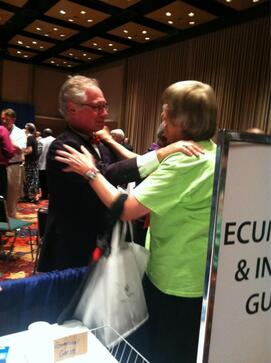
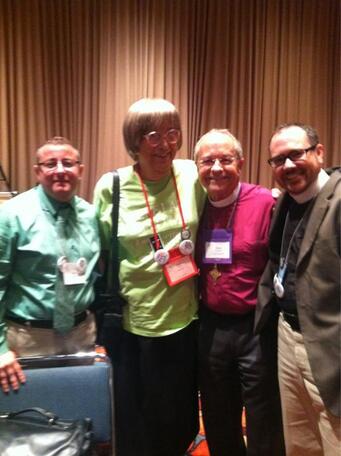
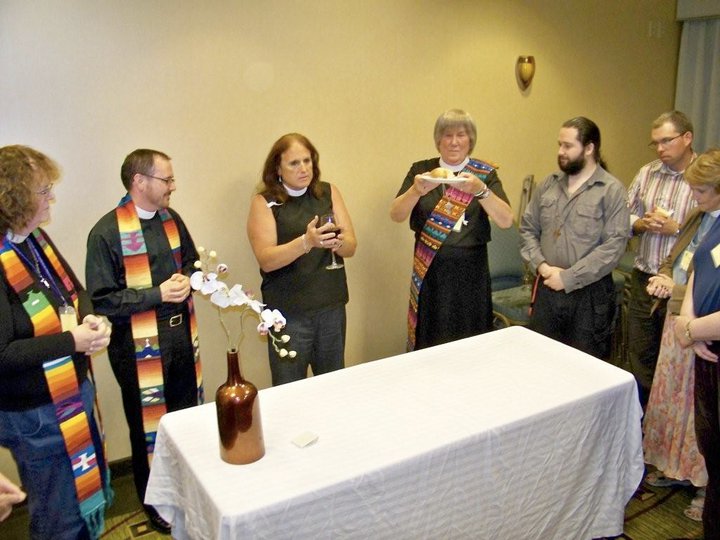
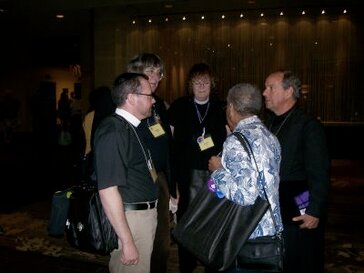
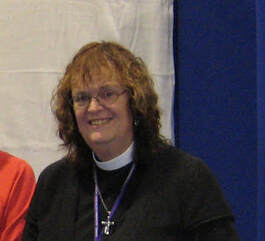
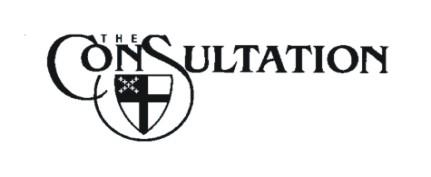
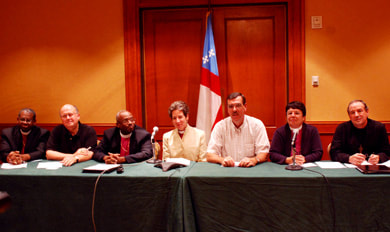
 RSS Feed
RSS Feed